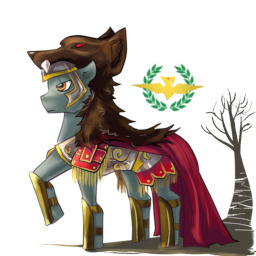
Chapter 1
“How are the people of the Emerald Isles to tell the difference between a merchant and a thief?”
Winter Wind smiled, a charming sort of expression, often practiced and enhanced by tousled hair. “Merchants have dashing good looks.”
Pin Hook often carried a riding crop, for gesturing and other purposes, but Winter was past that juvenile age when discipline could be enforced only with regular beatings. She touched the back of his neck with its cold tip, and he laughed, without the need for further correction.
“By relative status,” he said, as he fixed his mane in the caravan’s tiny mirror. “The thief needs their money. They need the merchant’s money. The wise merchant must project wealth at all times, particularly when they are broke, for that is when they shall require credit, and the illusion of wealth shall be most needed.”
He gave his answer without doubt, and his appearance reflected that mindset. His uniform was a stark white, carefully bleached to highlight that he had servants to clean his clothes for him. Likewise, he adorned it as splendidly as decorum would allow, with colored patches on the shoulders and gold pins on the collar.
“Oh, you do listen,” Pin Hook withdrew the riding crop, tucking it in against her side. “But that is only half the answer. Status only conveys that you have money, but how do you make them need your money?”
“Before a pony needs money, they must first need, for money is a means to an end, and those who are content lack urgency in their desires.” Winter said, as he brushed his mane. “It is best to find those in need, as it is best to find any valuable resource in its natural state; to locate those farmers who have fallen upon misfortune, or those shopkeepers who fear for their ability to feed their children. Second-best is to create need through debt, which is the most common form of need, though one must be careful to know precisely what power one has to coerce delinquent debtors. Third-best is to create need through desire, such as the desire for drink or valuables, which may be profitable, but which is always unreliable, for the virtue of a single client quitting the drink may unravel a long chain of trades, from brewer to farmer.”
“Abstract, theoretical. How will you apply this knowledge in practice, in this village?”
After he was done fiddling with his collar, Winter Wind turned to face his master: “I was going to go talk to the locals, and we’ll see where things go from there.”
“That’s it? You’re going to wing it?”
“I’m a pegasus, Master. I always wing it.” He offered her a small smile, but then continued in a more serious tone. “And I think I’m ready to fly solo.”
For the next several days, Winter worked very hard. To begin with, he met another young stallion named Scláta, and the two got drunk and threw stones at frogs.
Next, he spent an evening curled up on a roof with a beautiful unicorn mare, who never did kiss him, but who made beautiful illusions in the air to narrate the stories he told, and who fell asleep tucked into his side. He got invited to a shopkeep’s home for a free hot meal, drank an entire bottle of his cider, and while there, scored an invitation to a wedding the next day. He did not wish to spend his little money on a gift, and so spent the day carving an ice sculpture for the bride and groom, and after they liked it, got to dance with the other guests.
Eventually, he made his way back to Pin Hook’s caravan, arriving in the mid morning, his mane greasy and his clothing tousled. His parents, Marig and Scrios, were outside the caravan, seeing to the minor tasks of camp: cooking, the cleaning of tools, the cleaning of clothes. Pin Hook, his master, sat at her small folding table, regarding her spellbook.
“You’ve been gone for awhile,” she observed.
“Yes, Master,” he said, with a bright and playful little grin.
“Get any mares pregnant?”
“Despite my best efforts, no, Master.”
She raised an eyebrow. “Did you learn anything?”
“I learned that I can peg a frog with a thrown rock from a hundred yards away, and that there is a mare in the village called Réaltaí, who is both clever and warm to cuddle against at night.”
With her magic, Pin Hook levitated her riding crop, but he spoke before she could deliver her threat, “And I learned that this village produces a most delicious, biting sort of cider, which is available cheaply, for they have a surplus of apples and little demand for it locally. I think it would sell very well in the capital, or even as far north as Tegrity.”
“What makes it special? The apples, the distiller, or the yeast and other additives? And whatever your answer, how do you know that is true?”
“It is the apples,” Winter said. “I know this because I have tried cider from three different distillers, at least two of whom use different additives, and they all taste much the same. Some are better than others of course, but I think it sufficient to say there is no single brewer here who might have leverage in a negotiation.”
“Mmmm,” Pin Hook considered her spellbook, feigning a lack of interest.
“I also learned that there is a stallion named Kalk, who was recently married to a mare named Feirm. She takes with her into the union a large part of her mother’s farm, that the couple might have land on which to live. But Kalk is a unicorn, and a dainty one at that, and his magic is not useful for agriculture. Already he fears he shall not be able to keep up the farm as his wife’s parents once did, and that he shall fall into their keeping, and be humiliated.”
“And what concern is that of ours?” she asked.
“I have asked if he would like to hire farm laborers, to assist him, perhaps to clear more land, and he was very receptive to the notion. I believe he will be open to going into debt.”
“Do you think he will be able to pay such debts?”
“No, he is a fool, and likewise his wife, but she owns a great deal of land, which includes a significant number of apple trees. Were we to offer to purchase his future crops with the same stoke with which we indebt him, we could cheaply acquire the stock needed to produce more cider.”
“It’s a risk,” Pin Hook observed, her tone detached. “You wouldn’t rather simply purchase some apples? Play it safe, try your hoof at the cider trade for a few years, before you make such a commitment?”
“Am I still getting a 10% commission?” he asked.
“For this village, yes. I wanted to see how you performed.”
“Then no, Master. I do not want to play it safe.” His tone turned firm, a touch prideful, as though she had rebuked him without cause. “I want to pillage this podunk craphole for everything that it’s worth, and wring it until blood comes out of the stones.”
“I think you mixed your metaphors there,” Pin Hook said, with a small smile. “But, good. Let me know when you have the details for my consideration. And clean yourself up, you smell like a week’s worth of sweat, and there’s mud on your clothes.”
“Yes, Master,” he said, walking past his table over to the area where his parents worked. He removed his uniform, and his horseshoes, handing each off to his dad to be cleaned. “Be sure to use the good bleach; the white fabric made a great impression.” With one beat of his wings, he floated over to where his mother worked, sniffing at her stew and making a face. “Is there any of the soda bread left?”
“Dearest…” said Marig, his mother. “You know you came from a village like this.”
Winter rolled his eyes. “Uh-huh. And so did you. And you want me to see the village I come from, right? To get to meet my grandparents? Well that’s only going to happen if you’re free, and I can’t buy two slaves on an apprentice’s salary. So if Master Pin Hook is going to offer me a commission, I’d be a fool to refuse.”
“I’m not saying you should refuse a commission, just that—”
“Just that I should fuck it up so I’m entitled to 10% of jack shit?” He wandered over to the camp supplies, and began rummaging through them. “Do you know how low the margins are getting on selling steel tools? Every pegasus with a sky wagon is doing it. A pony can’t make a living selling imperial crafts to the provinces, not anymore. There needs to be a kicker. Debt, or vertical integration, or something.”
“It’s not right,” his father said. “The way you look down on these ponies.”
“Alright, that’s fair,” Winter Wind said, as he finally found the heel of the soda bread. After days out, it was rock hard, and he gently chewed to soften it. “Just say, ‘I want to be a slave for the rest of my life and never see my home again’ and I’ll forget the whole thing, and collect a 10% commission on the two copper pieces of profit we get on selling trowels.”
Marig and Scrios’s faces both fell, but they said nothing. Into the silence, Pin Hook injected: “Neither of you are particularly capable slaves.”
That got the attention of all three ponies, who turned to face their master. “Scrios,” she addressed the older stallion. “You are half blind, and prone to exhaustion, and not as good at fixing the caravan as you once were. Twice I have had to hire a carpenter, despite having two slaves and an able-bodied apprentice at hand. This is not good. And Marig? You can’t make a good switchgrass stew to save your life. The butter is supposed to soak into the grass, not go over it. The way you do it somehow makes the stew taste dry, burnt, and greasy all at once. If I had any sense, I would have sold you both to the mines years ago, and replaced you with more competent help.”
She turned the page of her spellbook, and then tapped the table with the handle of her riding crop. “But Winter Wind loves you, and so as a courtesy to him, I retain you that he might one day buy you and set you free. As he has asked to do since he was eight. But courtesy has its limits. If you disrespect my instruction again, I will beat you both until you cannot stand. And if you disrespect my instruction a third time, I shall sell you to a gold mine, and you two who were born pegasi will never see the sky again, and will die entombed beneath the earth.”
Silence hung over the camp, Marig, Scrios, and Winter each had drawn faces.
“That’s-” Marig began, but Winter cut her off.
“She’s right, mom,” he said, speaking quickly, his voice stiff. “Your stew is terrible. But there’s several good chefs in this village. Talk with one. You know, figure it out.” He said. “And until then, I really, really think you should shut up.”
“It’s not-” she started again.
“Master,” Winter snapped out the words, “may I borrow your riding crop?”
“You may,” Pin Hook said. She floated it across to him, and he took it in his teeth.
He didn’t have to use it. The two camp slaves saw to their duties without further conversation or incident.
Over the next week, Winter Wind made his first independent deals as a merchant. First, to the young stallion who had praised his ability to throw rocks at frogs, he sold an engraved steel knife, in return for a box of spices that he said were “probably worthless.” But after all, they were friends.
To the beautiful unicorn mare who curled up with him and made the lovely illusions, he sold a book of agricultural spells, purchased on credit. But he should never indebt such a lovely creature as she, and so guaranteed she could pay it off working on the Feirm farm, turning their apples to cider.
To the shopkeep whose hospitality he had enjoyed, he sold a great profusion of steel tools at a reasonable cost, for while a trowel might sell at a profit of three copper, there was other value in having the favor of a local merchant. A percentage of the take he was promised, if he kept an eye on local affairs while Winter and Pin Hook were away. By this means was the shopkeep made a spy against his own people.
Finally, to the couple whose wedding he had attended, he made a loan of many thousands of imperial sabers, signed by the couple, by himself, by Pin Hook, and the village’s petty king. The interest rate was a “modest” 20 percent annually, but Winter assured the couple that the sale of apples would more than cover the annual interest.
It was seen as a great success by all involved, and the young couple threw another party to celebrate, in which cider was the theme and much drunkenness occurred. Two bottles under, Winter attempted to get under the tail of the pretty unicorn mare, but she only laughed and kissed his cheek.
“I prefer stallions who can stand up straight without staggering over,” she said, firmly pushing him away. “You should get back to your caravan.”
He tried to kiss her again, got rejected again, and reluctantly agreed to call it a night. With uneven beats of his wings, he rose into the air, starting back towards the village. But her voice rose up behind him in alarm, “Stop!”
He turned in midair, overcorrecting and facing at right angles to her. The second try went better. “Not that way,” she warned. “You must take the road back to the village. Do not fly directly.”
“Why not?” he asked. “There’s no fog. I can find my way at night just fine. I can see a candle a mile away.”
“Because Dorchadas Way is directly between us and the village.” She pointed, and in the pale moonlight, Winter could see a hill, atop it some kind of structure or ruin.
“I’m not going to hit the hill. I can go up, you know.” He smiled and pointed. “Up to the clouds.”
“Not the hill,” she said, annoyed. “Dorchadas Way is the castle at the top. It’s fine during the day, but night is when the Diaghan come out.”
For a moment, he was sure he misheard her: “I’m sorry, what?”
“The Diaghan,” she repeated, “the Old Masters. A year ago, there was nothing on that hill but loose stones. But since they returned, the castle has been collapsing in reverse, pulling itself up from the muck.”
He laughed. “I think you’re mistaken. Ghosts or fair folk, perhaps, but the Diaghan are gone. There are no more of them.”
“Of course there are,” the pretty unicorn snapped. “Your empress is one, isn’t she?”
“Well yes, but—”
“And have you not seen the statues with wings and horns, that still speak with their old voices? Not seen the rituals that invoke their names, and which still function? They say that in Feall Diermad, one of the Diaghan still dwells in the flesh, for she swore long ago never to leave the queen’s side, and so remains where the rest of her people departed. Their empire has fallen, but they are not gone. Not so gone that we do not see them from time to time.”
“Well…” He mulled that over. “If the glorious old masters are truly back, why do you avoid the hill?”
The mare’s smile flickered, and it was with some unease that she answered: “If they wanted us, they’d summon us. Best not to bother one’s betters.”
Winter did not recall exactly how he came to be outside the old castle gates, two more bottles of cider tucked into his saddlebags. He’d had notions, perhaps, of buzzing low over the castle, of throwing bottles against the stones and shouting at the spirits, before laughing and flying away.
Perhaps that had been his intent. Perhaps he thought better of it at the last moment.
Or, perhaps he’d expected monsters. Labor crews of zombies, skeletal stonemasons, vicious goblins working to restore the battlements. Maybe he wanted to see for himself, to know the thrill of the life of the treasure hunter. But he saw no such thing. It was as the mare had described: teams of alicorns working to restore the fortress: masons who lifted stones like earth ponies and flew them into place. Artisans who drifted along the walls on gentle puffs of wing, using their horns to perform fine detail work.
No great magic, he thought. No castle, collapsing in reverse. Merely the sounds of construction, utterly mundane, except in that it was performed by gods, and conducted in darkness. Not a candle was lit, not a torch burned, even their unicorn magic produced no light.
He saw by starlight. Saw the laborers by their shadows, saw the flyers where they occluded the stars. He finished one of the bottles of cider, threw the bottle and let it shatter on the rocks below him on the hillside. The workers took no notice. After several fumbling attempts, he produced a book of wooden matches from his saddlebags, and struck one.
At once, the flame went out, and Winter Wind found he was surrounded on all sides by ten of the creatures. Guards, mares and stallions at arms, clad in shining armor from a lost era, skin as dark as the space between the stars wrapped in silver plates that sparkled in even the faintest moonlight. They had not moved, nor made a sound. They were simply there.
He might have thought them phasms, ghosts or shades, if he could not smell them. Sweat and musk, soap and perfume on the officers, grease on their weapons. Ghosts or shades did not have so much life, phasms did not have so much detail.
As they stood there, silent, he reached out and touched one. Nestled his hoof into it’s coat, felt its heartbeat and the warmth of its body.
His coat, he could see. Though he could barely make it out, it was surely a stallion, and it nickered at his unwelcome intrusion.
Winter could hardly say nothing, and so he said, “Take me to your ruler.”
And they did. Through long twisting corridors, stained with the dust and rot of ages, through once grand halls whose ceilings had since collapsed, along the old ways, into the old keep, and finally, to a throne room, which showed no signs of decay. A throne room that appeared as new as the day it was first made.
And there, in its center, sat the ruler of the keep, though at first he did not see her. So dark was her flesh, so massive her form, that he thought he was staring at a wall of shadow, that the throne room simply ended beyond a certain point. Thus it was that he greeted her with nothing but a puzzled stare.
Until she smiled. Until he saw her teeth, saw her lift a hoof.
Her form was as the behemoth, three stories tall at the shoulders, so grand she would shatter the walls of the throne room if she ever spread her wings. Her muscles were as iron, her hooves as the mountain stone, her horn a lance of silver that could impale dragons. Her teeth, which shone white against her dark form, were not the teeth that graze upon the grass nor grind the seed of the grain, but that of the wolf, the mountain lion, long and sharp within her jaw. Her eyes were like coals, and it was only ashe stared into them that Winter realized the throne room had no open ceiling. No starlight. No candles.
It was the light from those eyes that allowed him to see, a smouldering power so great she could not help but express it. It was only then that he truly beheld her, and he pissed himself with fear.
“Please don’t kill me,” he said, his voice cracking, and in that moment, he regretted every decision that had brought him to this point.
“Kill you?” Her voice was soft, barely a whisper, but when she spoke, she silenced all rival sounds. Neither his heart beat, nor his breath, nor the click of his own hooves upon the earth dared to compete with her voice for his attention. Every word was clear as a bell. “Don’t you think somepony would have warned you if I ate the little foals that came up this way to play?”
She examined the back of her own hoof, as though seeing it for the first time. “And they do, you know. As though you’re the first child to hear of a place they aren’t supposed to go, and skip off in the middle of the night.”
When his answer was naught but trembling, she sighed, her breath a chill wind. An icy wind, he realized, and he wondered if it was for this moment he was named, that it was here he met his destiny. “Too much?” she asked. “Too much.”
She changed forms before him. He did not see it happen, she did not shrink or shift. He merely blinked, and she was something else, no longer a giant, but a mare of his height. Still an alicorn, still magic, still winged and strong and darker than he could have before imagined, but those coal-fire eyes could look him muzzle to muzzle.
“Better?” she asked.
“Wha…” He stammered, becoming aware of the hot flush in his cheeks and the scent of his own urine. “What are you?”
“I’m Diaghan,” she giggled, her laugh like distant bells. “Can’t you tell?”
“No you aren’t. You’re a shade or… or undead, or something.”
“Oh, well. Since you know so much. Far be it from me to contradict you.” She turned away from him, and flicked her tail under his nose. Such a mare she was, strong of the body and wide in the hips, with wings to make any pegasus ache with envy, and skin that smelled of lilacs and night air. The momentary distraction, combined with his own shame, reduced him to stammering, and again she laughed.
“Oh, pretty colt,” she cooed, sitting up a throne that had appeared behind her, as seamlessly as she herself had changed forms. “What brings you here, pretty colt?”
“It was a mistake. An accident. I’m sorry.”
“You traveled a thousand miles from your home by accident?” The skeptical crease of her brow was invisible to him, but he could infer its existence through the faint motions of her eyes, the darkness around those coal-lights. “Quite an accident.”
“No no, not…” He stammered. “That was… not here. Not the castle. The village.”
“And what is the purpose of a castle, pretty colt? It is to defend the land, and to rule it. The ponies you have deceived remember that this castle is called Dorchadas Way, but they do not recall that Dorchadas was once the name of the village itself. It is my domain, and I am its queen. Your arrival at my castle is a triviality, your arrival on my lands, more significant.”
Winter needed a moment to collect his wits. He took several deep breaths, wiped the sweat from his brow, and forced his heartbeat to slow, all luxuries she allowed him. Only once he was able to speak clearly did he say: “I am a merchant.”
“Not a merchant’s apprentice?”
“I’m a little old to be hiding behind a mare’s skirts!” he snapped. After a moment, he drew in a deep breath, and corrected himself. “I mean, uh… I am many things, but a stallion who throws others in harm's way to save his own hide is not one of them.”
“Debatable,” said the shadow on the throne, but her tone begrudged him that much. “But very well, merchant, you have come to my lands, sought to pillage the wealth of my people, deceived them, robbed them. Why should you survive our encounter?”
“If it is your desire that the ponies of Dorchadas should fear you, you have means available to you more…” He momentarily stumbled over his words. “Effective than my corpse. But you have few more effective ways of convincing them that you are a monster, than to slaughter a guest in your own home.”
“Oh, clever.” She pointed at him with a hoof. “Very clever. But I don’t appreciate you placing my ponies in your debt, nor scheming to profit from their misfortune. You will release those you have bound from their obligations, go, and never return to this place.”
He took a step back, faltered momentarily, then straightened his spine. “In return for a boon.”
“A boon?” She let out a gentle snort. “You think you’re in a position to make demands?”
“A million may die in the legions, but not one will be offered as tribute.” And though Winter trembled as he said it, he stood his ground. “An imperial citizen does not bow to foreigners. And if you’re about to threaten to kill me again? Then go to hell. Everyone dies, but only some people die cowards.”
Silence hung in the hall.
“Hmmm.” The mare smiled, and the gesture showed her wolf-teeth. “A boon then, mmm? What do you want?”
“My parents are slaves. I would see them freed.”
“Very well,” the mare said, a strange, sparkling fog surrounding her unicorn horn. “Then I shall strike your wicked master dead.”
“No!” Winter leapt forward before she could complete her spell, but the two guards who had escorted him grabbed him by the shoulders, and with great weight and unnatural strength, pinned him to the ground.
“Such loyalty,” she spoke, her voice once again chilly and distant, “to the one who has brought your family uncountable cruelties.”
“You’re the one who thinks a death threat is a valid opening offer,” Winter wheezed, the breath pressed from his lungs, “buy your people’s freedom with treasure and wonder, not misery!”
“Why should I reward your misdeeds with gold?”
“It would end this confrontation bloodlessly, and make you a friend to the villagers!” he snarled, though his body shook for the tension within it. “Purchases made with treasure are nearly always cheaper than those made with blood. But there is no treasure here, is there? Only old stones, and shadows that can’t stand the touch of sunlight. You’re bluffing because you’ve got nothing. I don’t think you could even have touched me, if I hadn’t walked onto the castle grounds willingly.”
For a long time, the shadow on the throne was silent.
Then she clapped her hooves, and two servants appeared, bearing between then an enormous chest. With their hooves, they each opened it, and it unfolded into many levels and compartments, like a mare’s jewelry box. In the light from her eyes, Winter Wind could see gold and silver glittering in those containers: rings and earrings, staves and wands, jewels and magic crystals, all manner of wonders for the taking.
She withdrew a small bag, and threw it on the ground before him. A small pile of tarnished, old silver coins clattered to the stones before him. He counted them, twenty-seven exactly.
“That is everything I have,” she said. “Accept that deal or I kill you here and now.”
“That’s it?” He stared at the meager pile. “You have no other powers? Nothing that might be of use?”
“As you have correctly surmised, I can bring death and destruction into the world, but I will not do so at your behest.” For a moment, her eyes sunk to the floor. “So no, pretty colt, I have nothing else for you.”
He stared at the money, and then said, “What about advice?”
“Advice?” she frowned.
“Do you have the memory of the Diaghan’s rule? If so… I will take your… twenty-seven silver pieces, and speak with you, and ask you questions until the sun rises. And in the morning, I will release the villagers from all debts and obligations.”
“And what of your parents?”
“Do you have the power to free them without killing my master?” he asked, and she shook her head. “Then let that be my problem.”
He awoke the next morning on the hillside, surrounded by empty cider bottles, reeking of vomit and his own piss. Several pegasi from the village had found him, paid by Pin Hook, who sent them searching for him after he failed to return the previous night.
“What happened?” she asked him.
“I made a trade with a Diaghan,” he said. “And learned many useful things.”
From his saddlebags he produced a single sheet of parchment, which he handed her. She read through it, eyes scanning quickly. “If any of these sites still exist,” she said, slowly. “This information could be very valuable.”
“I have a book of things like that,” and he produced the book from his saddlebags. “And I will trade you half of it, in return for the villagers’ debts and obligations in their entirety.”
“You’ll trade it to me?” Her tone turned sharp. “I’m your master, and you acquired this information while in my employ. I could take it from you by right.”
“You could,” he agreed. “You could do all sorts of things. But I’ve already stared down one mare who threatened to kill me today, and you didn’t raise me to accept a 10% commission when I could take more.”
After a small pause, Pin Hook’s brow furrowed. “The spirit in the ruins threatened to kill you?”
“Yes.”
“And you stared her down?” she gestured at the book. “For this?”
“Yes.”
“Before or after you got so drunk you pissed yourself?”
“After,” he said, without pause. “And that wasn’t because I was drunk. I was… scared. She was the size of a house. And it caught me by surprise.”
After a long pause, Pin Hook nodded. “Alright. Then… then we’ll talk about half. After I hear the other details.” She hesitated, her expression momentarily uncertain. “I’m glad you weren’t hurt.”
“I know,” he said, slowly.
“You should uh…” She gestured down the hill. “Go clean yourself up.”
And so, Winter tucked the book back into his bags, and returned to the caravan.

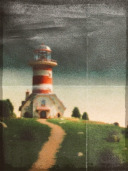

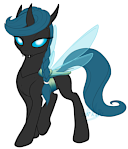
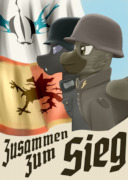
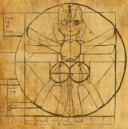

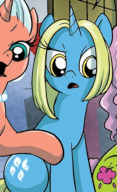
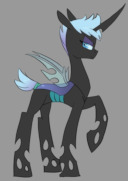






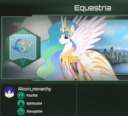

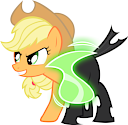
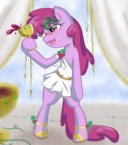
spectacular.
" 'Go home?' This is motion towards, isn't it boy?"
Not bad at all, a very Roman story.
There's no cowardice in his bones, and he's definitely not dying at all.
Splendid. :D
Amazing. I want to know more about everything and yet am content that this is a one shot.
Well, this was an interesting one.
(Also probably better suited to some fantasy anthology than this site, perhaps - but then I'd never have read it, so I won't complain.)
Hm
WEWEASE WAWITY!